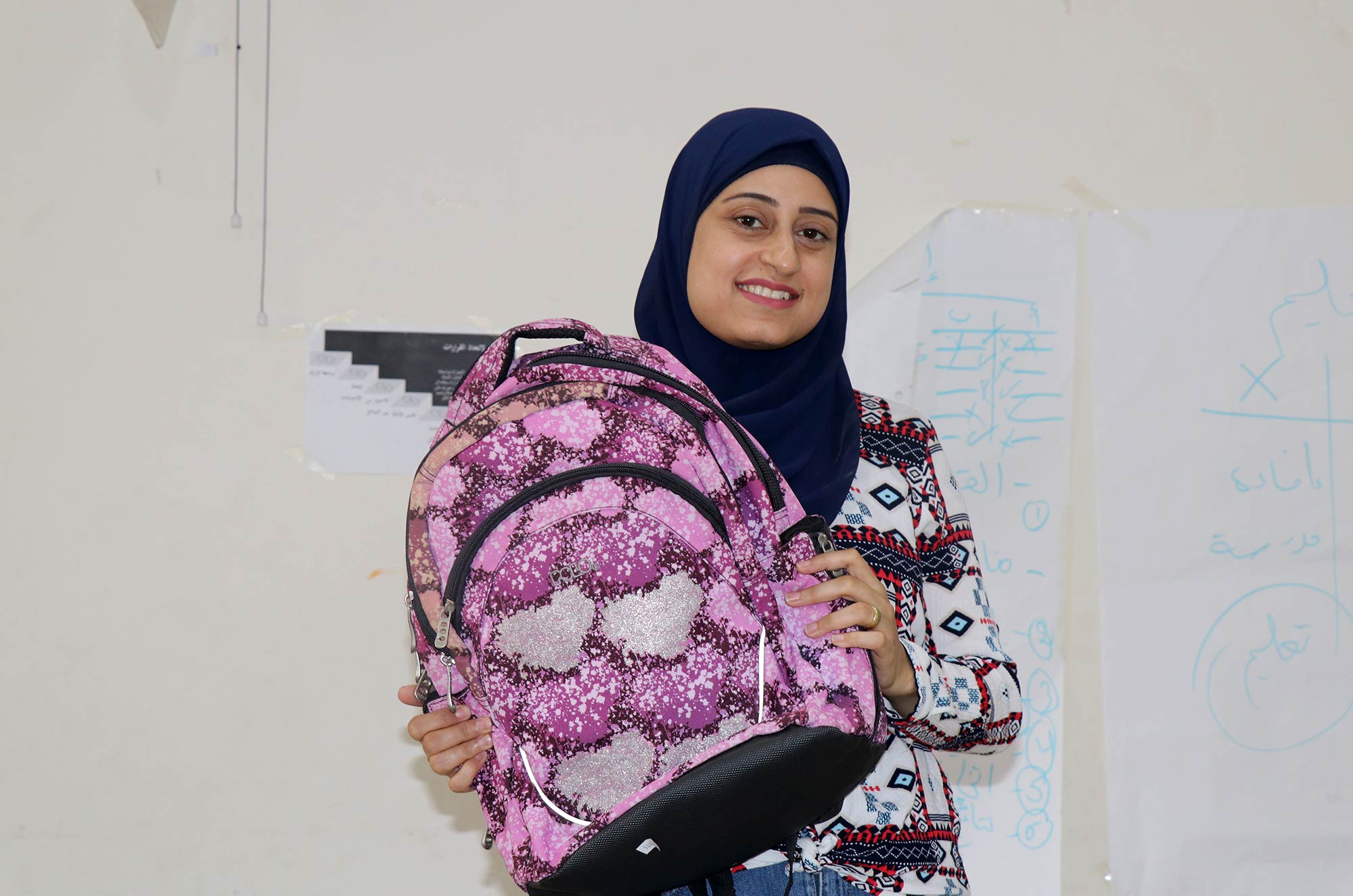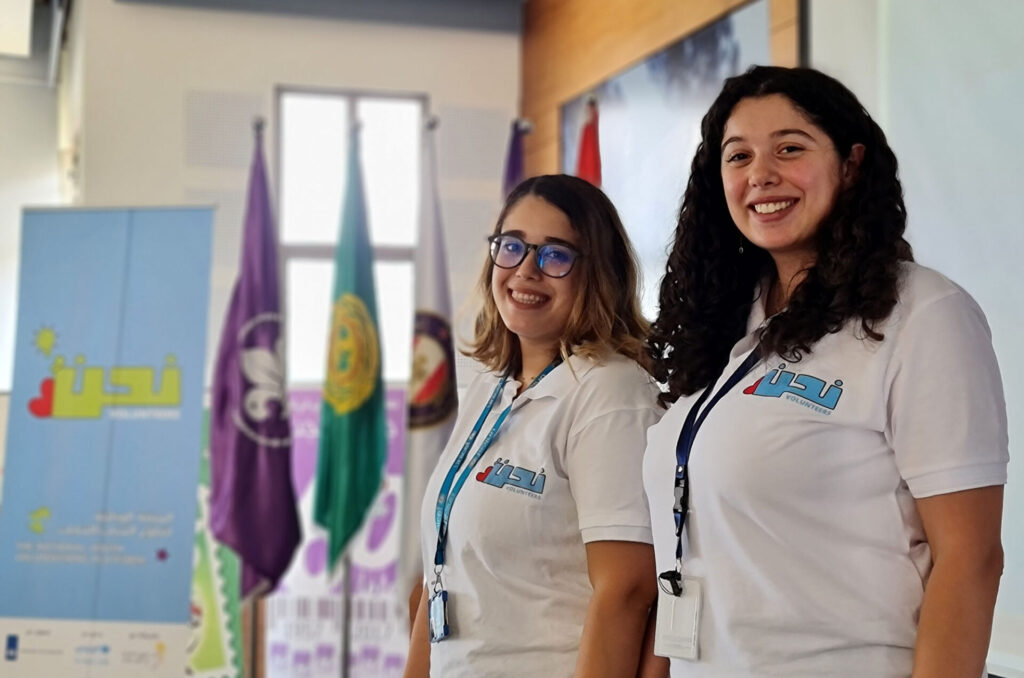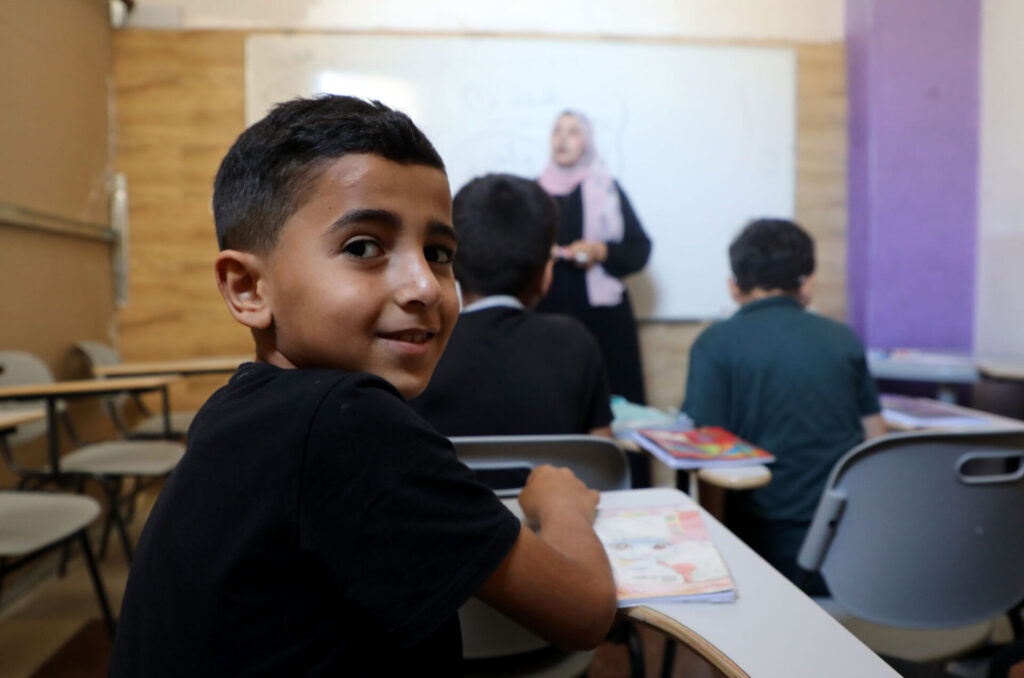EDUCATION
Back to school in style!
Oct, 2019
"Around 98 percent of the kids who study at Al-Nour Educational Center don’t have bags, so what is happening right now is so much more meaningful than just an equipment donation." — Fatima Mahmoud, educational supervisor, Women Programs Association
As in most of the world, it’s back to school season in Lebanon this fall. In many areas of Beirut, colorful ads for the latest back-to-school-related products are everywhere.
Those ads are not for everyone though. In fact, almost half of the city consists of neighborhoods and urban refugee camps where families often must rely upon donations of second-hand school materials.
Many children are deprived of the back-to-school experience entirely because their families cannot afford the basic materials and school fees. The cost of clothes, transportation fees, notebooks and other school supplies can be prohibitive for far too many families.
Burj El Barajneh camp is home to many such families. Piney Kesting, a writer, consultant, and Anera board member, says,
"We met six-year-old Bilal the summer of 2018 in Burj El Barajneh, a Palestinian refugee camp located in the southern suburbs of Beirut, Lebanon. He and his mother were attending an Anera sponsored community health meeting that day. When he came over to speak with us, we asked him if he had a special wish for something. His eyes opened wide and he told us in a shy voice that all he wanted was a backpack full of books so that he could learn. He didn’t want toys or games, just a backpack and books he could call his own, something most children growing up in refugee camps don’t have."
Bilal and hundreds of other children living in Burj El Barajneh face daily hardships most of us cannot imagine. The camp was built in 1948 on one kilometer (0.38 mile) of land by the League of Red Cross Societies to provide temporary housing for Palestinians forced to flee their homes and villages in northern Palestine. The rudimentary cement block housing was originally meant to accommodate 10,000 refugees. Seventy-one years later the camp is home to more than 31,000 refugees, including thousands who in recent years have been displaced by the war in Syria.
Burj El Barajneh is the most overpopulated camp in Beirut. It has dank, narrow, unlit passageways that wind through the crowded camp, an old sewage system that often spills out into the streets, no trees, grass or sunny parks for children to play in. The camp floods regularly in winter and living conditions year round are extremely challenging.
Like many of Anera’s board members, Kesting occasionally visits Lebanon to gain a first-hand impression of the needs and struggles of the people which Anera serves. She says, “I first went to Burj Al Barajneh camp in 1977. It was the first refugee camp I had ever visited. I volunteered to deliver medicine shipments from Germany to residents during the Lebanese war."
In 2018, after visiting Lebanon, Kesting, inspired by Bilal, went back to the U.S. with a goal: to raise enough money to buy new, quality school bags for all the children of Burj El Barajneh. With the support of her friends and family members, she raised the money in the months that followed and sent it to Anera to purchase and deliver the first batch of colorful new backpacks.
Anera has made a first distribution of backpacks to 110 students in October 2019, and has another 197 ready for distribution in the coming weeks or months. Kesting plans to continue her fundraising campaign to hopefully deliver another 400 to 500 new backpacks.
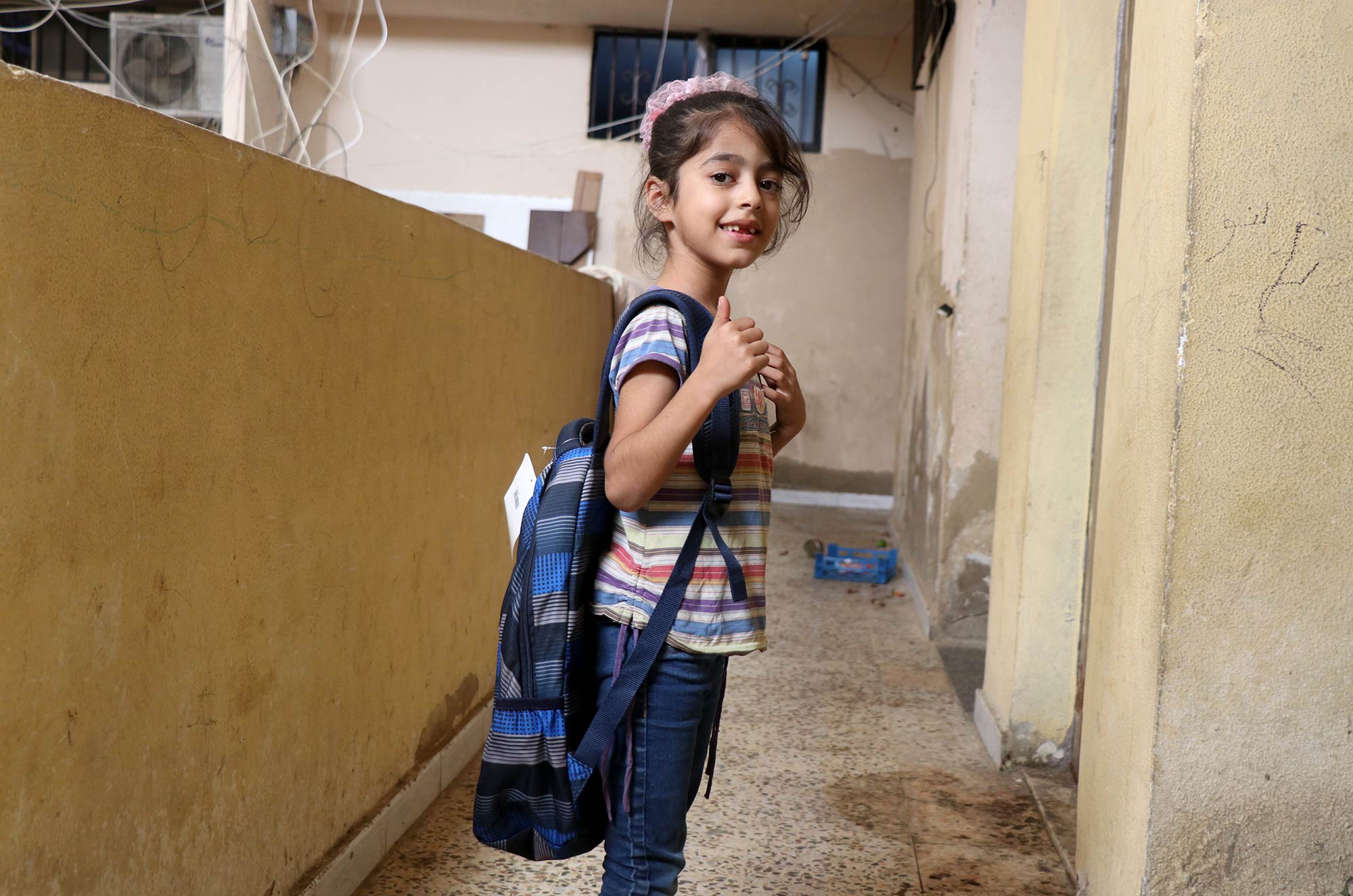

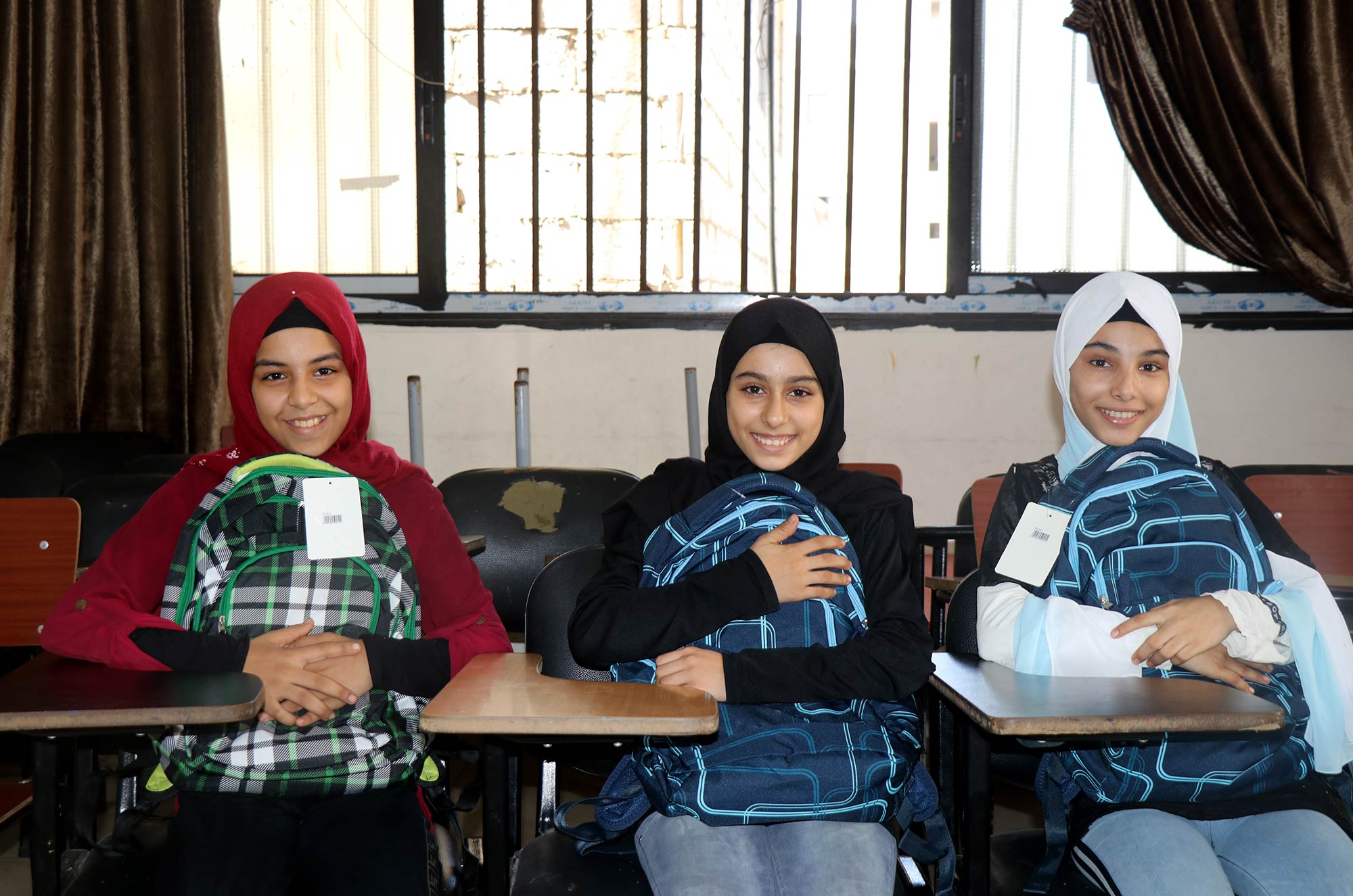

Fatima Mahmoud, an educational supervisor at the Women Programs Association, one of Anera’s local partners in Beirut, comments,
“For some kids, having a school bag is a dream. I realize it might not sound as dire as medicine or food but, for a 10-year-old kid, it might be even more important. Around 98 percent of the kids who study at Al-Nour Educational Center don’t have bags, so what is happening right now is so much more meaningful than just an equipment donation. It is a beautiful experience and I feel blessed to be a part of it.”
The children with new backpacks can attest that efforts by individuals can make a real difference in the lives of others.
